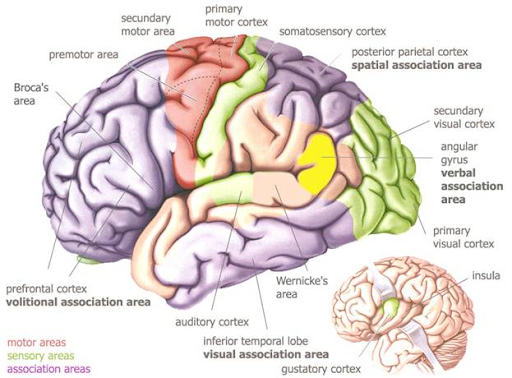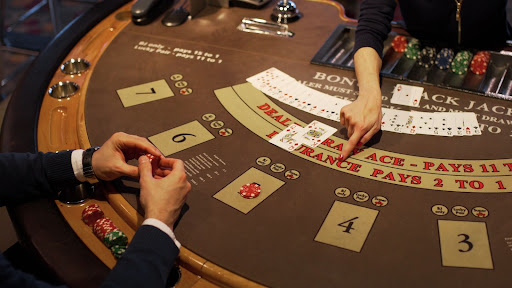Stopping compulsive gambling. How does it affect mental health and where can we ask for support?
Compulsive gambling is the inability to resist or control the impulse of gambling. Traditionally, gambling has been widely accepted by cultures around the world. Some Roman emperors including Augustus and Nero were compulsive gamblers and gambling was common to cultures extending from far East China to the Americas.
In recent decades, gambling has been identified as a societal problem that can have serious consequences on people’s lives leading to problems with personal relationships, job loss, bankruptcy or even crime and fraud. Technological progress played an important role in the development of gambling practices such as online gambling. It increased its spread amplifying the negative impact that compulsive gambling has had on people and on society.
But how do people become addicted to gambling?
Compulsive gambling is not a personal choice or a failure of will. It is an addictive disorder sharing common neural mechanisms with other disorders such as substance abuse or compulsive eating.
The brain of an addictive gambler undergoes dramatic changes. The region of the brain responsible for inhibitory control also known as the prefrontal cortex becomes hypoactive, whilst the regions of the brain responsible for emotional processing and integration of signals received from the body such as the insula and the anterior cingulate cortex become overactive. These regions can be found in the figure below. Thus, both the emotional and the cognitive regions of the brain are compromised to a greater or lesser extent. This means that their behaviour is influenced more by impulsive emotions than by inhibitory control.

In compulsive gamblers, the anticipation which occurs whilst betting generates the same excitement as winning. ... And the gambling industry exploits this!

Can people become aware of their compulsive gambling and what is its link with other mental health problems?
The signs of compulsive gambling are multiple and diverse, and they can derive from its association with other mental health problems. Compulsive gambling is often associated with poor mental health and the use of various substances. The most common mental health problems that compulsive gamblers can experience are depression, anxiety, insomnia, migraine, and other stress-related disorders.
Gambling can be a cause of these conditions or a repercussion. In some cases, the urge to gamble can lead to over-excitement and insomnia which can further increase stress levels and generate anxious feelings. Sleep deprivation can also lead to impaired mental function and depressive symptoms. A single mental health problem generated by gambling such as insomnia can trigger a cascade of other symptoms.
In some other cases, people start gambling because they have underlying mental health issues such as anxiety and depression or because this is their response to traumatic life events. As it sometimes happens with substance abuse, people can start gambling to manage their anxiety or depression. Some people report that gambling distracts them from anxious feelings or depressing thoughts.
Therapies or treatments used for other mental health problems can help alleviate compulsive gambling symptoms. These may include physical exercise, walks in nature, a healthier routine and lifestyle, mindfulness meditation or cognitive-behavioural therapy (CBT) and treatment for post-traumatic stress disorder (PTSD).
Most importantly, compulsive gambling is a serious and complex mental health disorder that can present comorbidities (i.e., having more than one illness) and specialist help is highly recommended.

Searching for help: available services and support.
Institutions and governments have started raising awareness of gambling problems and have tried to reduce the stigma that may be associated with it.
Patients with gambling problems may speak to their General Practitioner (GP) who can further refer them to specialist help. They may also want to directly contact a psychologist or speak to friends and family about this. Patients can also contact mental health charities such as St Andrew’s Healthcare, The Brain Charity, and others (links below).
As with any other mental health problem, communication and seeking help are crucial and patients usually have to undergo therapy or other treatments to recover.
Links to charities and services in the UK
GamCare: Provides confidential advice, information and emotional support to anyone experiencing problems with gambling. https://www.gamcare.org.uk/
The National Gambling Helpline: Provides confidential information, advice and support for anyone affected by gambling problems in England, Scotland and Wales.
808 8020 133 or live chat 24 hours: https://www.gamcare.org.uk/get-support/talk-to-us-now/
BIGDEAL: This service aimed particularly at young people helps you get support relating to gambling either for yourself or someone you care about. bigdeal.org.uk
GAMSTOP: Sign up for the service and you will be prevented from using gambling websites and apps run by companies licensed in Great Britain, for a period of your choosing. On https://www.gamstop.co.uk/
Gamblers Anonymous UK: Get online support from people going through the same thing as you. https://www.gamblersanonymous.org.uk/
Gordon Moody Association: Intensive residential treatment for gambling addicts. https://gordonmoody.org.uk/
Gambling Therapy: You can contact Gambling Therapy for advice and support even if you're outside the UK. Visit gamblingtherapy.org
Northern Gambling Service: NHS-run provider of treatment for problem gamblers and their families throughout the North of England and North Midlands. Visit Northern Gambling Service
St Andrew's Healthcare: https://www.stah.org/
The Brain Charity: https://www.thebraincharity.org.uk/get-help/
Diagrams and Definitions:
Inhibitory control - the ability to suppress a thought, an action or a feeling.
Cortex - the outer layer of the brain composed of folded grey matter.
Prefrontal cortex - is the portion of the brain located at the front of the brain (forehead area) with a series of functions including decision making, personality expression and complex cognitive behaviour.
Insula - portion of the cortex located in both hemispheres with the main function of integrating signals coming from the body (interoceptive signals).
cingulate cortex - the region of the brain with connections to both the ‘emotional’ limbic system and the ‘cognitive’ prefrontal cortex.
Back to Top